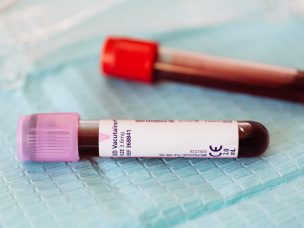Anemia
Biliverdin Reductase B Plays Antioxidant Role in RBCs
BlvrB was determined to be an important antioxidant in mature red blood cells and was especially helpful in preventing hemolytic anemia in G6PD-deficient mice in a recent study. Biliverdin reductase B (BlvrB) is the fourth-most abundant enzyme in red blood cells (RBCs) and is also present in many other tissues. Existing literature on heme metabolism...
Biliverdin Reductase B Plays Antioxidant Role in RBCs
BlvrB is an important antioxidant in mature red blood cells. It is especially helpful in preventing hemolytic anemia in G6PD-deficient individuals. Biliverdin reductase B (BlvrB) is the fourth-most abundant enzyme in red blood cells (RBCs) and is also present in many other tissues. Existing literature on heme metabolism and bilirubin-related pathologies has predominantly focused on...
CRISPR Maps Essential Genes in Erythropoiesis
In this study, researchers used CRISPR gene editing to map genes that play a vital role in erythropoiesis, which may be instrumental in managing aplastic anemia. The objective of this study, shared in a paper at the 65th ASH Annual Meeting & Exposition, was to understand genes governing red blood cell (RBC) development. While prior...
Mitochondrial Quality Control in RBC Development: The Crucial Role of Atg4a
The autophagy-associated protease Atg4a helps maintain mitochondrial quality during the development phase of red blood cells through autophagy and, thus, removal of dysfunctional mitochondria, according to a new study. The loss of this quality control results in low heme concentrations in red blood cells, even in the absence of overt iron deficiency. Maintaining mitochondrial quality...
Study Identifies Anemia Cause in Intracerebral Hemorrhage Patients
A new study found that one-third of intracerebral hemorrhage patients experience anemia and that this occurs due to continued inflammation, causing bone marrow erythropoiesis suppression. The study also demonstrated that IL-6 antagonists may benefit such patients, increasing erythropoiesis and reducing neural deficits. Intracerebral hemorrhage (ICH) is among the leading causes of death and disability globally...
Use of Rituximab in Cold Agglutinin Disease
Treatment with rituximab was associated with a greater incidence of serious infections in patients with cold agglutinin disease. Rituximab administration was associated with a high relapse rate and short duration of therapeutic response. Rituximab has been used off-label for the treatment of autoimmune hemolytic anemia, including cold agglutinin disease (CAD). This retrospective observational study aimed...
Erythrophagocytosis Mediated By Circulating Monocytes Is Induced By Distinct Mechanisms
In sickle cell anemia, red blood cells have a predominant role in the enhancement of phagocytic activity by mast cells, but in polycythemia vera, both cell types contribute to this phenomenon Stress erythropoiesis (SE) occurs when the physiological process of erythropoiesis is insufficient to fulfill the required production of functional red blood cells (RBCs), resulting...
Iron Deficiency Anemia Effects on Cerebrovascular Physiology in Healthy Women
Iron deficiency impairs cognition, and a recent study found that those with hemoglobin < 10.0 g/dl scored more than one standard deviation below those with milder anemia. A hemoglobin level below 11 g/dl, considered moderate iron deficiency anemia (IDA), affects 1.5 percent of the U.S. population and is more common among minority groups. However, little...
Novel Biomarkers for Assessing Clinical Severity in Hereditary Spherocytosis
Novel osmoscan-derived biomarkers Omin-width and Omax-width exhibited correlations with RDW, hyperchromic cells (Omax-width), OFT outcomes (Omin-width), and clinical severity in a monocenter retrospective cohort study. Hereditary spherocytosis (HS) is characterized by membrane instability of red blood cells (RBCs) and resultant instability and loss of the cell membrane due to pathogenic variants in genes involved in...
More Medical News












